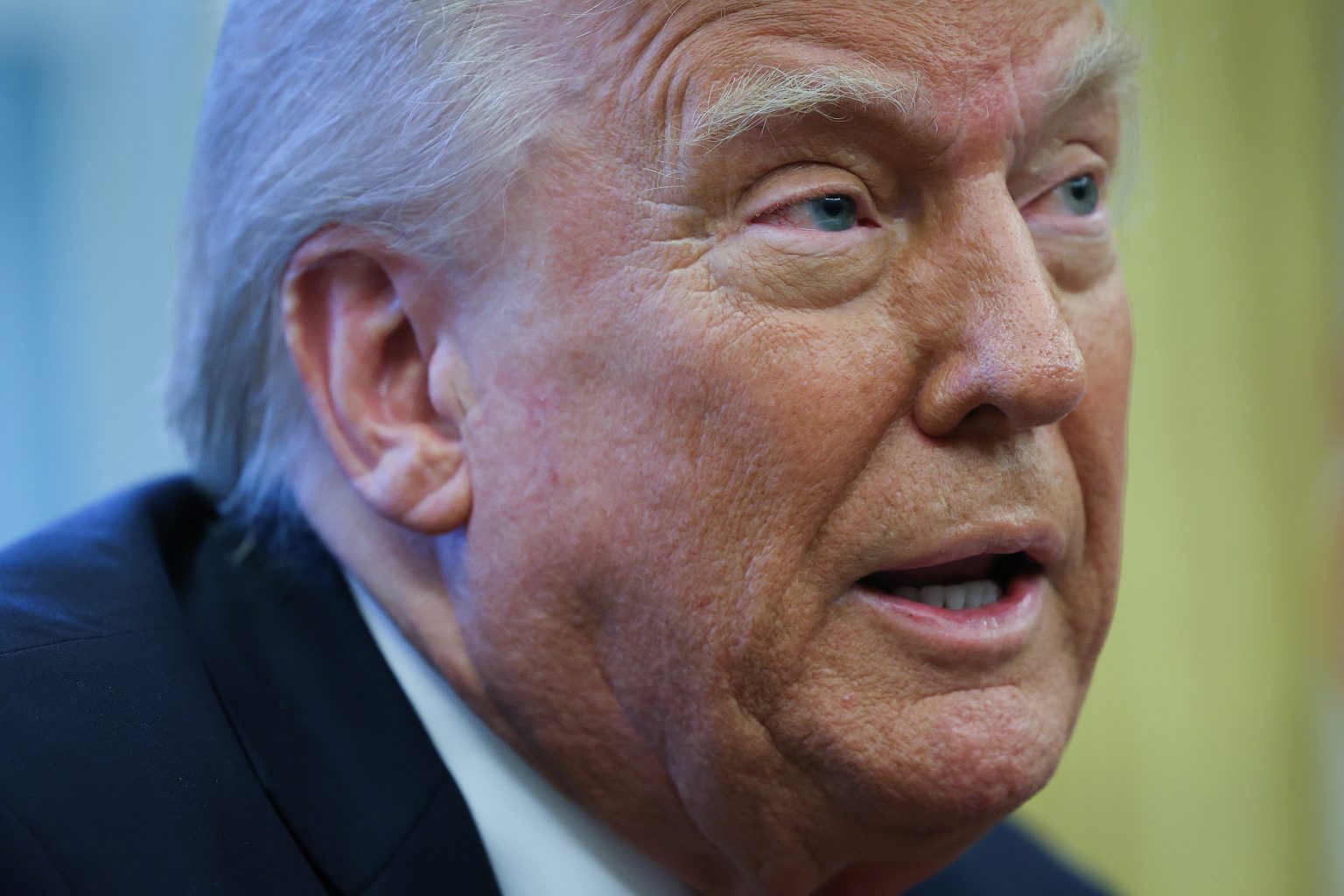Summarize this content to 2000 words in 6 paragraphs Americans are increasingly worried about the direction the U.S. housing market is heading toward this year as Donald Trump’s tariffs threaten to cause a rise in construction costs, halting new building projects for much-needed inventory.According to a new survey conducted by St. Louis-based real estate company Clever Real Estate, 70 percent of Americans fear an impending housing market crash, while 95 percent are worried about price increases across the board this year.Why It MattersA yearslong affordability crunch that has pushed millions of aspiring homebuyers on the sidelines of the market brought housing at the forefront of the problems concerning American voters ahead of the 2024 presidential election.Trump ran with the promise of lowering the cost of living by imposing tariffs on trade partners and boosting the national economy, while he pledged to make housing more affordable by freeing up inventory through mass deportations and opening up federal land for the construction of new residential homes.However, experts have expressed concerns that some of these policies might exacerbate the current labor shortage in the construction sector and the cost of homebuilding materials might rise as a result of tariffs on countries like Canada, from which the U.S. imports a considerable amount of softwood lumber.What To KnowA majority of American voters expressed frustration with the Joe Biden administration’s handling of the U.S. economy ahead of the November 5 which determined the return of Trump to the White House. But a little over two months since the president’s inauguration, few think they are better off now.One in four of the 1,000 Americans surveyed by Clever Real Estate now feels economically better off than they were six months ago, and a third (34 percent) expects to be better off in six months than they are today.Mostly, they are uncertain about what is going to happen to the U.S. economy: 81 percent are worried about tariffs and potential trade wars, while 72 percent believe they will hurt the country’s economy.
President Donald Trump speaks to the press after signing an executive order in the Oval Office of the White House on March 26, 2025, in Washington, DC.
President Donald Trump speaks to the press after signing an executive order in the Oval Office of the White House on March 26, 2025, in Washington, DC.
Win McNamee/Getty Images
They are also doubting that the president can fix the situation: a majority 63 percent think that the government is not currently taking the right actions to address their economic concerns.And some fear that a downturn in the U.S. economy will further erode their capacity to keep up with the higher cost of housing. Thirty-two percent think they won’t be able to afford housing payments as a result of the 2025 economy.The top economic worries for this year, according to the survey, are rising insurance costs (95 percent), inflation (94 percent), the U.S. economy in general (89 percent), rising costs of home maintenance and repairs (89 percent), and rising property taxes (88 percent).Three-quarters of Americans (74 percent) think inflation will worsen over the next year, and 70 percent are more worried about the rising cost of living now than they were in September of last year.Crucially, the survey was conducted between March 5 and 9, before Trump imposed a 25 percent tariff on all cars and some car parts imported to the U.S.What People Are SayingRealtor.com senior economist Joel Berner said in a statement: “There’s no doubt that the current state of the housing market is a source of anxiety for prospective buyers and sellers/ Buyers are faced with high mortgage rates, which are poised to remain high due to the inflationary nature of the Trump administration’s trade policy.”He added, indicating that a full-on housing crash is unlikely due to pent-up demand: “If home prices did drop, we would expect a flurry of buying activity from the pent-up households in the nation that are waiting to form, which would buoy the market naturally.”Danielle Hale, the chief economist at Realtor.com, previously told Newsweek: “If the U.S. economy were to tip into a recession now, home sales are barely above long-term lows and may not have much further to fall. But economic stress among homeowners could prompt faster inventory growth that could lead to softening prices, a phenomenon we have not seen in a long time.”Susan Wachter, a professor of real estate at the Wharton School of the University of Pennsylvania, previously told Newsweek: “A recession is likely to dampen housing demand initially due to insecurity about job prospects. However, mortgage rates are likely to decline further and this can prompt buying. Historically, housing markets have led the way out of recessions, as interest rates typically fall in response to expansionary monetary policy and house prices fall as a result of a decline in aggregate demand.”Michael Ryan, a finance expert and the founder of MichaelRyanMoney.com, previously told Newsweek: “Young couples putting off that starter home. Families stuck in rental cycles. It’s like watching the American dream slip through their fingers, one decimal point at a time.”How much of this is Trump’s doing? It’s complicated. His tariff talks and immigration policies are spooking homebuilders. The Housing Market Index dropping to 42? That’s more than just a statistic; that’s confidence evaporating.”What’s NextThe way people feel about the economy has a direct impact on how well the economy does. Pessimism surrounding the U.S. economy and housing market could keep sellers and buyers on the sidelines, bringing it to a grind.








